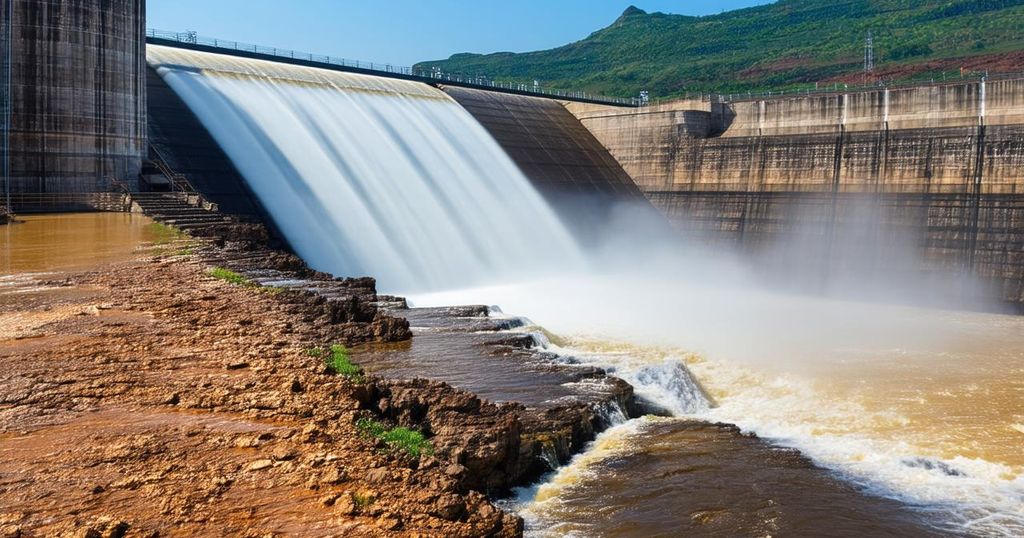Severe Power Outages in Zambia and Zimbabwe Due to Drought Impacting Hydroelectric Supplies
Zambia and Zimbabwe are facing extensive power outages of up to 17 hours daily due to drought conditions affecting the Kariba Dam, which is pivotal for hydroelectric power generation in both countries.
Zambia and Zimbabwe are currently experiencing frequent power outages, with disruptions lasting as long as 17 hours each day. These ongoing blackouts stem from severe drought conditions that have critically impacted the water levels at the Kariba Dam, the largest artificial lake in the world, which is a primary source of hydroelectric power for both nations. As a result, households and businesses alike are grappling with the consequences of diminished electricity supply, exacerbating the challenges faced in these economically vulnerable regions.
The current situation in Zambia and Zimbabwe is a direct consequence of climate variability leading to pronounced droughts. The Kariba Dam, which plays a crucial role in the hydroelectric power generation for these countries, relies on consistent water levels to operate efficiently. However, prolonged dry weather has resulted in significantly low water levels, rendering the dam unable to produce sufficient electricity, thus plunging millions into darkness. This scenario presents not only a logistical headache but also impacts economic activities and the daily lives of the residents in these countries, reflecting a broader pattern of energy crisis influenced by climate change.
In summary, the drought affecting the Kariba Dam has led to excessive power cuts in Zambia and Zimbabwe, resulting in daily outages that can last up to 17 hours. This situation highlights the vulnerability of countries reliant on hydroelectric power in the face of changing climate conditions, underlining the urgent need for diversified energy solutions and sustainable water management practices to ensure energy security.
Original Source: www.france24.com




Post Comment